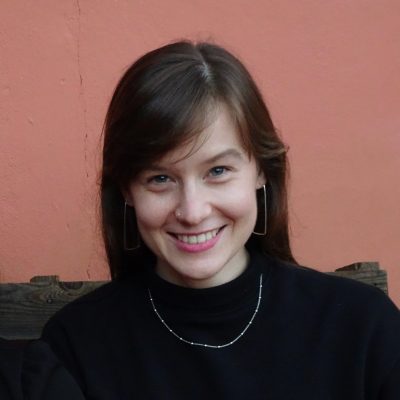Alumna Spotlight: Carol-Rose Little, Ph.D. ’20

February 2, 2021
Carol-Rose Little, Ph.D. ’20, is an alumna of the linguistics program at Cornell, from which she holds a Ph.D. She is now a postdoctoral fellow in the department of linguistics at McGill University.
Tell us about your current position and what you find rewarding about it.
Due to the current pandemic situation, all my work has been virtual. Nevertheless, I have found ways to bond with my new department and make connections. I have had many fruitful discussions during reading groups organized by McGill. It has been exciting to bond with others doing similar work in a different department. Even though everything has been virtual this year, I have enjoyed the welcoming dynamic of the department. I have had many productive conversations about my research, which has given me new ways to look at puzzles and theories. I have recently started working on a co-authored paper with my supervisor at McGill: the paper provides a new perspective connecting two seemingly distinct topics, drawing on novel data from two under-represented Mayan languages. It has been exciting and rewarding to explore connections between these two topics and be able to link this research to one of the chapters in my dissertation.
An upside to the pandemic is that it is possible to invite guest lectures from many parts of the world. Last semester I taught one of the required linguistics major courses—introduction to syntax. At the end of the semester, I invited three colleagues of mine to share how theoretical syntax can be connected to careers in speech language pathology, natural language processing, and the entertainment industry. It gave the students a chance to see how they can apply the theory learned in the course to future jobs and internships. The invited lecturers were all in different parts of the world, but because everything was virtual, these career-developing sessions were possible! This semester, I am teaching a course called “Languages of the World”. In conjunction with the undergraduate linguistics student association, we are showing a number of films that are in under-represented languages of the world, such as Yiddish and Tsotsil. We have also been able to invite experts who speak those languages to give commentary after the showing of the film.
How did your participation in the 3MT competition prepare you to succeed professionally? What skills did you learn?
The 3MT competition prepared me professionally as I had to distill my research down to a few dozen sentences but also make it approachable to a broad audience. It challenged me to think about the implications of my research for a wide audience as well as make it sound interesting to those not familiar with field-internal debates.
Have you used anything that you learned from 3MT in your current position?
Yes. For example, I have had to apply to grants that are within the humanities and social sciences. The reviewers will not necessarily be in my field, therefore I have had to think more broadly about how to target my work to a larger audience. The 3MT competition has helped me with being able to frame my work within the broader academic context. Additionally, the 3MT competition has helped me think about how to describe my research to friends and family!
If you could go back in time to the beginning of your graduate career, what advice would you give yourself?
Make sure you enjoy what you are doing—even if you don’t end up getting a job in your research field, at least you will have spent 5+ years doing something you love!

